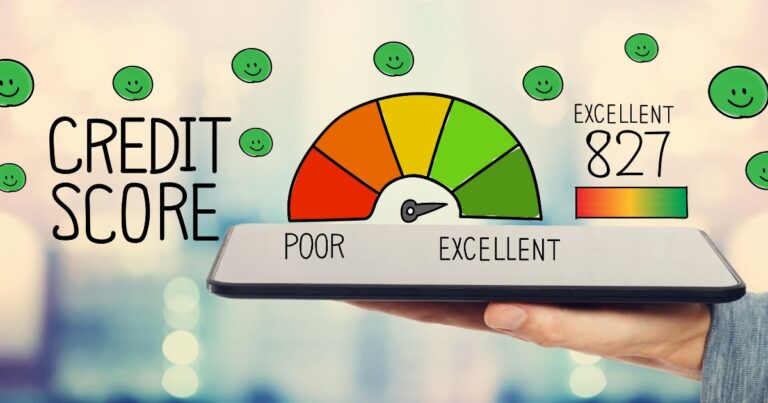When you are getting ready to buy a home, your credit score will be crucial in determining whether you can get a mortgage loan. If you have a very good credit score, you may qualify for a mortgage with more favorable terms, such as a reduced interest rate. This is especially true if your credit score is great. On the other hand, having a poor credit score makes getting approved for a loan more challenging and results in a higher interest rate. Increasing your credit score before applying for a mortgage is a topic we’ll cover in this post.
What is a Credit Score?
Your creditworthiness is expressed numerically by your credit score. Your payment history, credit usage, length of credit history, types of credit accounts, and most recent credit inquiries are taken into account while calculating it. Higher scores indicate greater creditworthiness, with credit scores ranging from 300 to 850.
Why is a Good Credit Score Important for a Mortgage?
A good credit score is important for a mortgage because it demonstrates to lenders that you’re a responsible borrower likely to repay your loan on time. This makes lending money to you a less hazardous proposition, which could lead to a cheaper interest rate and better terms for the loan. However, if your credit score is quite low, you may have trouble getting a mortgage loan or be offered a higher interest rate, both of which would drive up the cost of your financing. Additionally, a low credit score can result in a greater interest rate.
How to Boost Your Credit Score Before Applying for a Mortgage?
Check Your Credit Report
Checking your credit report for any mistakes or inconsistencies should be the first thing you do if you want to improve/enhance your credit score. Once a year, you have the legal right to request and get a free credit report copy from each of the 3 big credit agencies: Equifax, Experian, and TransUnion. Check your credit report for any mistakes or discrepancies, such as accounts that aren’t yours or late payments that you made on time. If you find any, dispute them immediately. Dispute any errors or inaccuracies with the credit bureau that reported them.
Pay Your Bills on Time
Because your payment history is the single most critical component in determining your credit score, it is imperative that you make timely payments of your bills. To guarantee that you will get all the payments, you can either set up automatic payments or reminders. A credit score can take a serious hit from even one late payment.
Reduce Your Credit Utilization
The ratio of the amount of credit you use to the total amount of available credit is referred to as credit usage. Your credit score could be improved if you have a high percentage of your available credit being used. In order to lower the percentage of your available credit that you are using, you should pay off the balances on existing credit cards and refrain from applying for any new credit.
Keep Old Credit Accounts Open
The duration of your credit history is another aspect that plays a significant role in the calculation of your credit score. Even if you are not currently using the accounts, keep them open so that you can demonstrate a longer credit history. When you close old accounts, you reduce the length of your credit history, which can have a negative impact on your credit score.
Avoid Applying for New Credit
A “hard inquiry” will be reported on your credit report whenever you file for new credit, which can cause your score to drop. Avoid applying for new credit, such as credit cards or loans, while preparing to apply for a mortgage loan.
Consider a Secured Credit Card
If you need help meeting the standards for a conventional credit card and require assistance, consider applying for a secured credit card. When applying for a secured credit card, you are required to submit a deposit, which serves as your credit limit. Responsible use of a secured credit card might assist you in establishing or rebuilding your credit history.
Work with a Credit Counselor
Consider working with a credit counselor if you’re struggling with debt or credit issues. A credit counselor may guide you through the process of developing a budget, negotiating with creditors, and developing a strategy to raise your credit score.
Final Thoughts
It’s necessary to raise your credit score before applying for a home loan because getting one is essential. Checking your credit report, paying your bills on time, lowering your credit utilization, keeping old credit accounts open, not applying for new credit, considering a secured credit card, working with a credit counselor, and checking your credit report can improve/enhance your credit score and your chances of approval for a mortgage loan with favorable terms.
It’s crucial to remember that raising your credit score before applying for a mortgage will result in annual savings of thousands of dollars.
FAQs:
What is considered a good credit score for a mortgage?
When applying for a mortgage, a credit score of 620 or more is normally considered to be in good standing. While on the other hand, if you have a higher credit score, you have a better chance of being approved for a mortgage loan with terms that are to your advantage, such as a lower interest rate.
How much time does it take to improve your credit score?
Improving your credit score can take time, depending on the factors affecting your credit score. It takes about 3-6 months of consistent, on-time payments to see a noticeable improvement in your credit score.
Can you get a mortgage with a credit score that is quite low?
Obtaining a mortgage with a low credit score is possible, but it may take work and result in higher interest rates and less favorable terms. Some lenders offer programs specifically designed for borrowers with lower credit scores, but these programs may have additional requirements or fees.
How often should I keep checking my credit report?
At the very least once a year, you should review your credit report to make sure that it contains correct and up-to-date information. Once a year, you are entitled to a free credit report copy from each of the three major credit reporting agencies.
Will checking my credit score hurt my credit?
No, monitoring your credit score won’t affect your credit score in any way. This type of query is known as a soft inquiry, and it will not impact your credit score in any way. However, applying for new credit, such as a credit card or loan, results in a hard inquiry, which can lower your credit score.
Visit our website ExpressMortgageQuotes.com to learn more.




